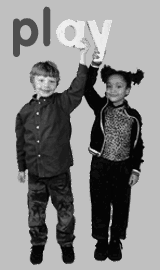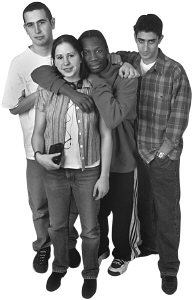 |
АвтоАвтоматизацияАрхитектураАстрономияАудитБиологияБухгалтерияВоенное делоГенетикаГеографияГеологияГосударствоДомДругоеЖурналистика и СМИИзобретательствоИностранные языкиИнформатикаИскусствоИсторияКомпьютерыКулинарияКультураЛексикологияЛитератураЛогикаМаркетингМатематикаМашиностроениеМедицинаМенеджментМеталлы и СваркаМеханикаМузыкаНаселениеОбразованиеОхрана безопасности жизниОхрана ТрудаПедагогикаПолитикаПравоПриборостроениеПрограммированиеПроизводствоПромышленностьПсихологияРадиоРегилияСвязьСоциологияСпортСтандартизацияСтроительствоТехнологииТорговляТуризмФизикаФизиологияФилософияФинансыХимияХозяйствоЦеннообразованиеЧерчениеЭкологияЭконометрикаЭкономикаЭлектроникаЮриспунденкция
The British Educational System
All state schools in Britain are free, and schools provide their pupils with books and equipment for their studies. About nine million kids attend 35.000 schools in Britain. Education is compulsory from five till sixteen years.

Parents have a choice – to send a child to a nursery school or a pre-school playground to prepare him or her for compulsory education.
Children go to primary school at five and continue until they are eleven.
Primary school is divided into infant school – from five to seven (where they learn to read and write, and the basis of arithmetic) and junior school – from eight to eleven (where they learn geography, history, biology, foreign languages and other subjects).
Seven percent of British schoolchildren go to private schools where they study from five to eighteen years. There are 2.400 private schools and they have been growing in number or popularity since the mid-1980s. Parents pay for these schools, and fees vary from about 250 pounds a term for a private nursery to 3.000 pounds a term or more for a secondary boarding school. Most private schools are called prep-schools because they prepare the children for the Common Entrance Exam which they take at the age of 11. This exam is for the entry into the best schools.


The most famous schools are called “public schools” and they have a long history and traditions. It is often necessary to put your child’s name on a waiting list at birth to be sure he or she gets a place. Children of wealthy or aristocratic families often go to the same public school as their parents and their grandparents. Eton is the best known of these schools.

At the age of sixteen pupils take a national exam called General Certificate of Secondary Education and then they can leave school if they wish. This is the end of compulsory education.
Some 16-year-olds continue their studies in the sixth form at school or at a six form college. The sixth form prepares pupils for a national exam called “A” level (that means – advanced) at 18.
If a young man would like to enter the university he needs “A” level. Other 16-year-olds choose to go to a college of further education to study for more practical diplomas relating to the word of work such as hairdressing, typing or mechanics.

Universities and colleges of higher education accept students with “A” levels from 18. Students study for a degree which takes an average three years of full-time study. Most students graduate at 21 or 22 and are given their degree at a special graduation ceremony.
In England there are 47 universities, including the Open University which teach via TV and radio, about 400 colleges and institutes of higher education. The Oldest universities in England are Oxford and Cambridge. Generally, universities award two kinds of degrees: the Bachelor’s degree and the master’s degree.
Vocabulary
free – бесплатный
to provide – обеспечивать
compulsory – обязательный
nursery school – дошкольное обучение (детсад)
primary school – начальная школа
infant school – младшая начальная школа
junior school – старшая начальная школа
private school – частная школа
secondary school – средняя школа
the Common Entrance Exam – Единый Вступительный экзамен
General Certificate of Secondary Education – Аттестат о получении среднего образования
Поиск по сайту: